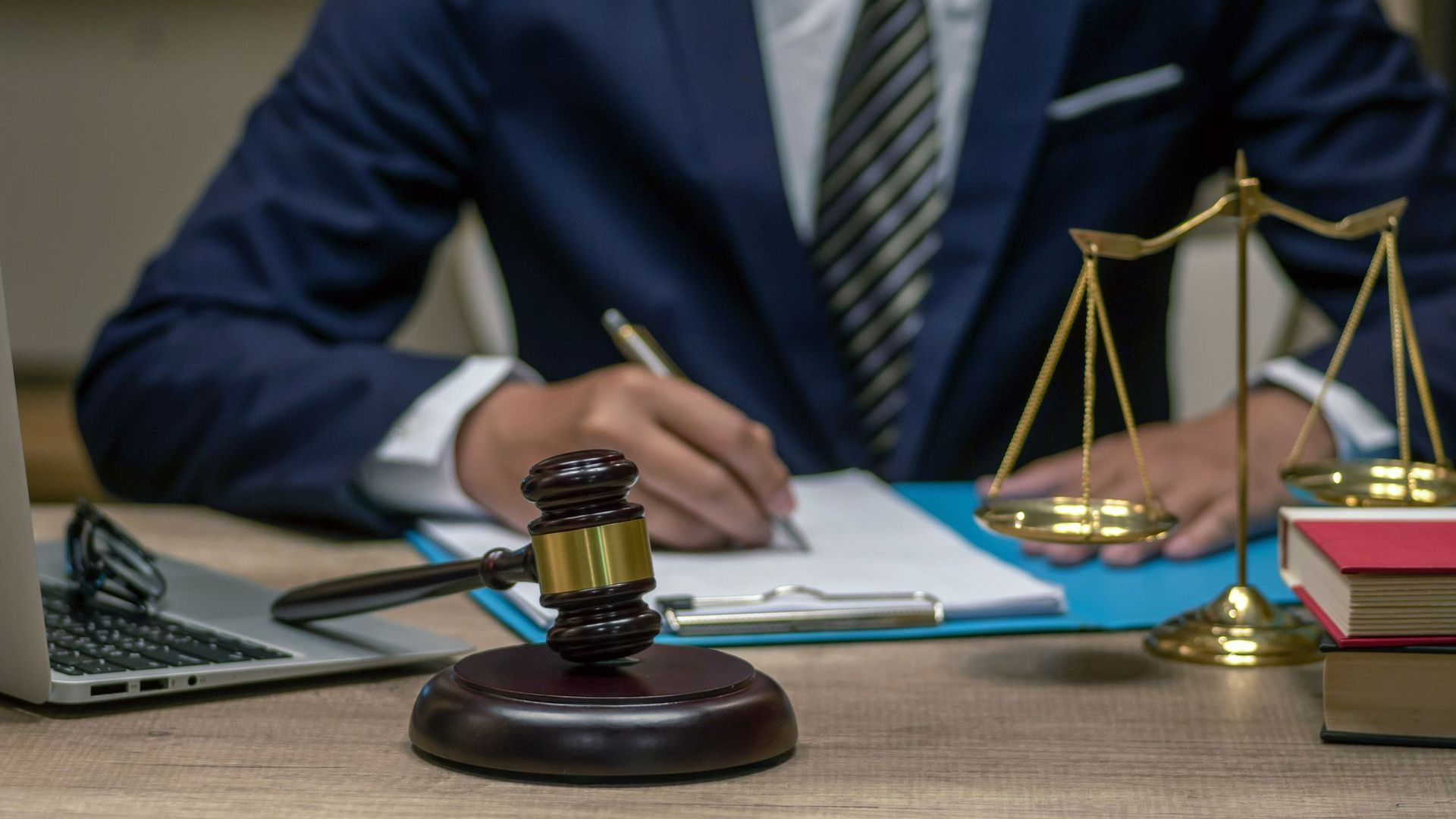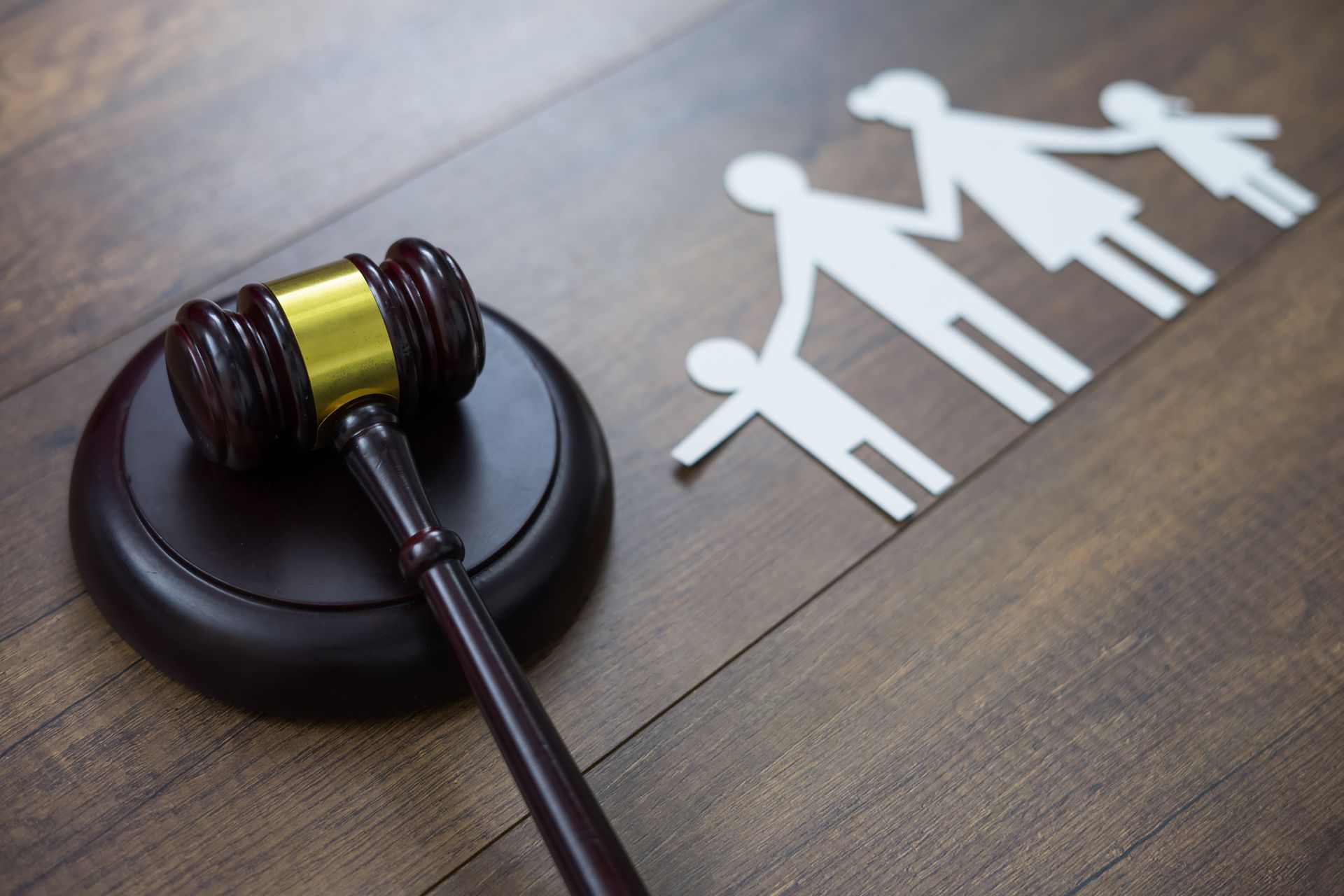Guardianship
UNDERSTAND THE RIGHT GUARDIANSHIP OPTIONS

Las Vegas, NV Guardianship Attorney
With many of the financial, personal, and legal matters that a person faces on a daily basis, that person is required to have ‘capacity’ as defined in the practice of law. The concept of capacity refers to having the legal power to act or make decisions, but it does not extend to everyone. A person may be incapacitated if they cannot receive and assess information appropriately, leading to challenges with communicating decisions about financial matters and self-care. Due to their young age, minors under 18 years old also lack capacity unless they are legally emancipated.
When someone is incapacitated and cannot manage financial, personal, and legal issues, Nevada guardianship laws provide a legal process by which others can assist. Through these proceedings, you can request that the court provide you with the authority to make decisions on behalf of a person who is incapacitated. If appointed as guardian, you essentially step into the shoes of the disabled adult or minor.

Acting as a guardian for someone is a monumental responsibility, which is why Nevada laws on the process are strict and complex. Fortunately, you can count on Escobar & Associates to help you navigate guardianship proceedings. We are knowledgeable about the laws and court rules, backed by extensive experience representing clients with these matters. Please contact our firm to schedule a complimentary consultation today. A Las Vegas guardianship attorney can offer customized details, and a summary is useful.
Guardianship of the Person

One aspect of guardianship laws applies to the health care, medical treatment, and well-being of a disabled adult or child. The duties of the personal guardian generally involve decision-making that supports the ward’s health needs and managing all associated tasks. Specifically, the guardian of the person has the power to:
- Determine living arrangements, such as in-home services and assisted living options;
- Monitor a residential placement to ensure the ward’s well-being;
- Consent to medical treatment and procedures;
- Request medical records related to the ward’s care;
- Act as representative payee for Social Security;
- Apply for other public benefits and assistance;
- Prepare a report about the ward’s health and well-being and present it in court, which is required at least once a year;
- Make decisions about end-of-life care, including the provision of life-sustaining treatment;
Overall, the personal guardian is to take on these duties with the goal of being as least restrictive as possible with the ward’s independence. To whatever extent he or she can make responsible decisions about health care, it should be allowed.
Guardianship of the Estate
The second key area of guardianship involves the ward’s financial affairs. Incapacity prevents disabled adults and minors from managing real estate, personal property, and many routine matters. A guardian of the estate takes on these responsibilities on behalf of the ward. This individual has the authority to:
- Manage real estate owned by the ward, such as the home where the ward resides and investment properties;
- Collect rents, income from investments, pension proceeds, and other income;
- Apply for government benefits the ward is entitled to by law;
- Make decisions on investments;
- Take on tasks at the ward’s business, when suitable;
- Handle insurance on the ward’s real estate and personal property;
- Pay bills and access information on accounts;
In serving as a guardian of the estate, you are in the position of a fiduciary. You are required to track all income and expenses of the ward, and you must present detailed documentation in court annually.

Who Can Act as Guardian
Nevada guardianship laws do include multiple criteria that a person must meet to be appointed by a court as a guardian. Adults aged 18 or older will qualify, as long as they are not incapacitated. An individual with a felony conviction in their background will be disqualified, subject to rare exceptions.
For both disabled adults and children, there are preferences in terms of appointing a guardian. For an adult ward, a spouse, adult child, and parent are listed in order. An adult sibling, grandparent, or uncle or aunt have a preference as guardian for a minor child.
Note that a person may name a guardian for a minor child in a will, and this provision may be triggered when both parents pass away. Even though the will is valid, there are additional steps to make guardianship for the person and/or estate of the minor effective.
A related point is who can be removed as guardian if they have already been appointed. The estate guardian may be removed for breach of fiduciary duty, while a guardian of the person could lose authority by not providing for the ward’s medical needs. A guardian may also become incapacitated, at which point they cannot continue to serve. This is an important consideration in cases involving an elderly person seeking to act on behalf of their spouse, the ward. An adult child might be a preferred option to act as guardian.
Legal Steps in Guardianship Cases
A guardianship case is an official legal proceeding that goes before a probate court. There are essentially two components of the case: First, adjudication that the ward needs a guardian, and then the appointment of a guardian. The process can be complicated, but our Nevada guardianship lawyers at Escobar & Associates will guide you through them:
- Preparations: You will file a petition to initiate a guardianship case, and there is information you may need to collect and organize to complete it. This is also the time to work out transportation and scheduling as necessary, as you will need to appear in court.
- Filing the Petition: It is necessary to file the petition for guardianship in the county court where the potential ward resides. In your document, you should detail all the reasons why you believe the individual is unable to responsibly manage financial matters and health care.
- Attending the Hearing: The court will schedule a hearing on your petition as you file it, and your attorney will prepare you on what to expect. If the evidence is clear that the person needs a guardian of the person and/or estate, a court will appoint the petitioner.
Beyond this initial court proceeding, a guardian will have ongoing responsibilities before the court. The guardian of the person will report on the ward’s comfort and welfare, while the estate guardian must present an accounting. A guardianship matter is terminated when a minor ward turns 18 years old or if an adult no longer suffers from a disabling medical condition. The case also ends upon the ward’s passing.
Contested Guardianships
The steps described above cover the situation if a guardianship petition goes smoothly. Disputes may arise, and there are many individuals or entities that could be potential parties in litigation. Consider the following scenarios:
- The person named as a proposed ward may disagree that he or she is unable to make responsible decisions. A ward can retain their own lawyer to fight your petition. These cases often involve medical experts who testify on the ward’s condition, abilities, and limitations.
- Another individual who has the legal authority to act may file a competing petition to be appointed as guardian. If the court adjudicates the ward as needing a guardian, the contested hearing focuses on who is suitable to serve. A judge will review the best interests of the ward when making a decision.
- There are other ways a guardianship case could be involved in litigation. As a legal entity, the estate can sue and be sued. With some guardianships, the reason the ward became incapacitated was an accident caused by someone else. The estate can pursue the negligent driver for damages. Likewise, if the estate owes a debt or is liable for a legal obligation, it may be named as a defendant in a lawsuit.
Options for Some Guardianship Cases
In many cases, it makes sense to have one person act as both estate and personal guardian. The majority of the time, a family member petitions and is appointed to serve. However, there are some situations where you might consider other options.
In Nevada, guardianship laws allow for private, professional guardians. These are organizations that will act as guardian of the person or estate, as appropriate, in certain situations. For instance, the estate of a ward with considerable wealth may need the higher level of financial sophistication offered by a financial institution. The funds held by the estate are intended to support the ward’s needs, so they must be properly managed to ensure they last through their lifetime. Depending on the ward’s residential situation, it may be suitable to have an organization act as a personal guardian.
Legal Assistance from an Experienced Lawyer
There are many challenges and complications that can arise in guardianship cases. Skilled legal representation is crucial throughout the proceedings. You could be involved in a case in various ways, and you have important rights to protect as a petitioner, potential ward, guardian, or another interested party. Because the case could extend for many years or even decades, you will need ongoing legal support.
Our team at Escobar & Associates has years of combined experience representing individuals in all roles in guardianship cases. You can count on a Las Vegas guardianship attorney to take care of essential tasks, but it is helpful to review some information on what to expect:
- We will consult with you about your position in the case and what goals you aim to accomplish. If you are seeking to be the guardian, we will advise you on your powers and duties. If you were named as a potential ward, our lawyers will coordinate an appropriate strategy to respond.
- Our team will prepare the documentation necessary to open a guardianship estate, including the petition and supporting paperwork. We will handle service to interested parties, who are entitled to notices about the proceedings.
- An attorney will be at your side to open an uncontested estate and assist as you step into the role of guardian. In a contested guardianship, we are prepared to defend your petition if others dispute your appointment. If you have reasons to contest the appointment of someone else, we will represent your position in court.
- Because of the ongoing responsibilities of a guardian, you can rely on our lawyers for periodic court appearances, preparation of court documents, and eventually closing the estate.
Alternatives to Guardianship Through Estate Planning
After a person is incapacitated, guardianship is the only way for loved ones to gain authority to act on their behalf. However, it is possible to make arrangements via your estate plan while you still have full capacity to make decisions. This overview should inspire you to look into options that avoid guardianship proceedings entirely. It is possible to do as part of your estate planning, including:
- Health Care Power of Attorney: With this document, you name a person to act as your agent in managing your health and well-being if you are incapacitated. The agent is the equivalent of a guardian of the person, except that you do not need to go to court. Your agent has the power to make decisions on treatment, consent to procedures, request medical records, and handle all other tasks related to health matters.
- Power of Attorney for Property: Instead of going through guardianship proceedings to appoint a guardian of the estate, you can sign this document. You will name a person as your attorney-in-fact, with all of the powers you designate for your real estate and personal property.
Speak to a Las Vegas, NV Guardianship Lawyer for Details
The guardianship process in Nevada is complicated. There are challenges with the initial process of obtaining letters of office in court, and a guardian has ongoing responsibilities to protect the ward. It is essential to get effective, knowledgeable legal representation if you are involved in a guardianship case, so please contact Escobar & Associates. We can explain more about the laws and advise you on estate planning options that might benefit your family. You can set up a free consultation by calling 702.789.1422 or filling out an online contact form.
CONTACT OUR LAW FIRM FOR COMPREHENSIVE LEGAL SERVICES
A guardianship can affect other issues within family law or estate planning. Call us at 702-789-1422 or contact us online to obtain a comprehensive analysis of your situation. Our attorneys will provide you with legal services tied to your personal, unique needs.
CALL US AT 702-789-1422
QUICK LINKS
CONTACT INFORMATION
Phone: 702-789-1422
Fax: 702-304-8265
Email: [email protected]
Address: 150 North Durango Drive Ste 230 Las Vegas, NV 89145
- Mon - Thu
- -
- Friday
- -
- Sat - Sun
- Closed
For over 30 years Escobar & Associates has been providing clients the personalized attention to their legal issues that they deserve. Christy Brad Escobar has sought to help individuals use the law effectively to improve their lives by building strong and successful families.
